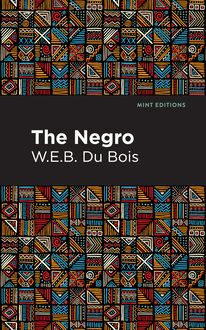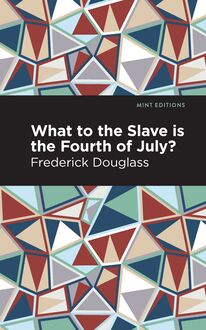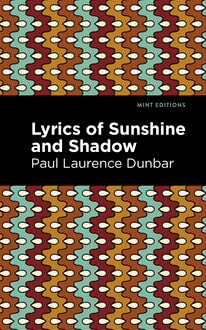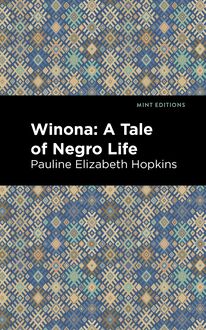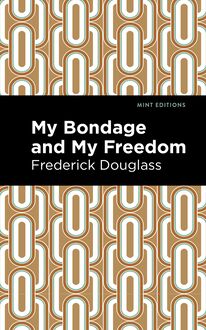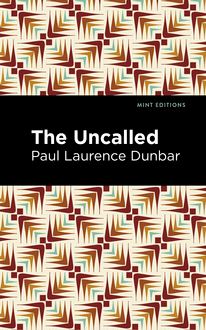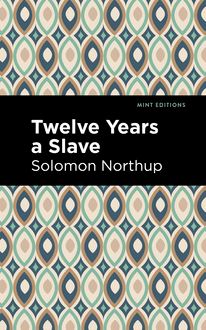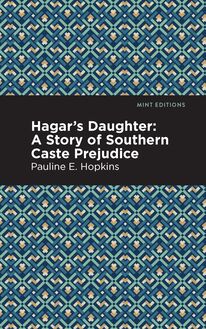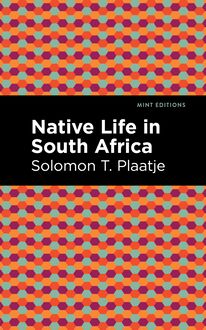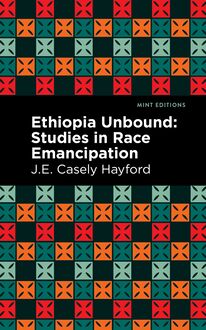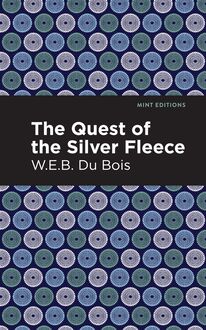-
 Univers
Univers
-
 Ebooks
Ebooks
-
 Livres audio
Livres audio
-
 Presse
Presse
-
 Podcasts
Podcasts
-
 BD
BD
-
 Documents
Documents
-
- Cours
- Révisions
- Ressources pédagogiques
- Sciences de l’éducation
- Manuels scolaires
- Langues
- Travaux de classe
- Annales de BEP
- Etudes supérieures
- Maternelle et primaire
- Fiches de lecture
- Orientation scolaire
- Méthodologie
- Corrigés de devoir
- Annales d’examens et concours
- Annales du bac
- Annales du brevet
- Rapports de stage
La lecture à portée de main
Vous pourrez modifier la taille du texte de cet ouvrage
Découvre YouScribe en t'inscrivant gratuitement
Je m'inscrisDécouvre YouScribe en t'inscrivant gratuitement
Je m'inscrisEn savoir plus
Vous pourrez modifier la taille du texte de cet ouvrage
En savoir plus

Description
The Gift of Black Folk (1924) is a book of essays by W. E. B. Du Bois. Written while the author was using his role at The Crisis, the official magazine of the NAACP, to publish emerging Black artists of the Harlem Renaissance, The Gift of Black Folk is a purposeful work of history which revises the narrative of European and British influence and emphasizes the outsized role of African Americans in building the nation and establishing its definitive culture. “[Despite] slavery, war and caste, and despite our present Negro problem, the American Negro is and has been a distinct asset to this country and has brought a contribution without which America could not have been.” This thesis could not be stated clearly enough. Recognizing, in the words of Dr. King, “that the keystone in the arch of oppression was the myth of inferiority,” Du Bois set out to revise American history to properly tell the story of his people. As he does in his magnum opus Black Reconstruction in America (1935), Du Bois recognizes that the failures of the Reconstruction era were due in large part to an unwillingness to accept Black people, enslaved or free, as human. In these essays, he emphasizes the role of African Americans as workers, soldiers, and explorers, situates them in the movement for women’s rights, and celebrates their contribution to the arts and culture of the nation. With a beautifully designed cover and professionally typeset manuscript, this edition of W. E. B. Du Bois’ The Gift of Black Folk is a classic of African American literature reimagined for modern readers.
Sujets
Informations
| Publié par | Mint Editions |
| Date de parution | 21 juin 2021 |
| Nombre de lectures | 0 |
| EAN13 | 9781513287669 |
| Langue | English |
| Poids de l'ouvrage | 2 Mo |
Informations légales : prix de location à la page 0,0500€. Cette information est donnée uniquement à titre indicatif conformément à la législation en vigueur.
Extrait
The Gift of Black Folk
W.E.B. Du Bois
The Gift of Black Folk was first published in 1924.
This edition published by Mint Editions 2021.
ISBN 9781513282640 | E-ISBN 9781513287669
Published by Mint Editions ®
minteditionbooks .com
Publishing Director: Jennifer Newens
Design & Production: Rachel Lopez Metzger
Project Manager: Micaela Clark
Typesetting: Westchester Publishing Services
C ONTENTS F OREWORD P RESCRIPT I. T HE B LACK E XPLORERS II. B LACK L ABOR III. B LACK S OLDIERS IV. T HE E MANCIPATION OF D EMOCRACY V. T HE R ECONSTRUCTION OF F REEDOM VI. T HE F REEDOM OF W OMANHOOD VII. T HE A MERICAN F OLK S ONG VIII. N EGRO A RT AND L ITERATURE IX. T HE G IFT OF THE S PIRIT P OSTSCRIPT
F OREWORD
I t is not uncommon for casual thinkers to assume that the United States of America is practically a continuation of English nationality. Our speech is English and the English played so large a part in our beginnings that it is easy to fall more or less consciously into the thought that the history of this nation has been but a continuation and development of these beginnings. A little reflection, however, quickly convinces us that at least there was present French influence in the Mississippi Valley and Spanish influence in the southeast and southwest. Everything else however that has been added to the American nationality is often looked upon as a sort of dilution of more or less doubtful value: peoples that had to be assimilated as far as possible and made over to the original and basic type. Thus we continually speak of Germans and Scandinavians, of Irish and Jews, Poles, Austrians and Hungarians; and, with few exceptions, we regard the coming of the Negroes as an unmitigated error and a national liability.
It is high time that this course of our thinking should be changed. America is conglomerate. This is at once her problem and her glory—perhaps indeed her sole and greatest reason for being. Her physical foundation is not English and while it is primarily it is not entirely European. It represents peculiarly a coming together of the peoples of the world. American institutions have been borrowed from England and France in the main, but with contributions from many and widely scattered groups. American history has no prototype and has been developed from the various racial elements. Despite the fact that our mother tongue is called English we have developed an American speech with its idiosyncrasies and idioms, a speech whose purity is not to be measured by its conformity to the speech of the British Isles. And finally the American spirit is a new and interesting result of divers threads of thought and feeling coming not only from America but from Europe and Asia and indeed from Africa.
This essay is an attempt to set forth more clearly than has hitherto been done the effect which the Negro has had upon American life. Its thesis is that despite slavery, war and caste, and despite our present Negro problem, the American Negro is and has been a distinct asset to this country and has brought a contribution without which America could not have been; and that perhaps the essence of our so-called Negro problem is the failure to recognize this fact and to continue to act as though the Negro was what we once imagined and wanted to imagine him—a representative of a subhuman species fitted only for subordination.
A moment’s thought will easily convince open minded persons that the contribution of the Negro to American nationality as slave, freedman and citizen was far from negligible. No element in American life has so subtly and yet clearly woven itself into the warp and woof of our thinking and acting as the American Negro. He came with the first explorers and helped in exploration. His labor was from the first the foundation of the American prosperity and the cause of the rapid growth of the new world in economic and social importance. Modern democracy rests not simply on the striving white men in Europe and America but also on the persistent struggle of the black men in America for two centuries. The military defense of this land has depended upon Negro soldiers from the time of the Colonial wars down to the struggle of the World War. Not only does the Negro appear, reappear and persist in American literature but a Negro American literature has arisen of deep significance, and Negro folk lore and music are among the choicest heritages of this land.
Finally the Negro had played a peculiar spiritual r ô le in America as a sort of living, breathing test of our ideals and an example of the faith, hope and tolerance of our religion.
P RESCRIPT
W ho made America? Who made this land that swings its empire from the Atlantic to the Sea of Peace and from Snow to Fire—this realm of New Freedom, with Opportunity and Ideal unlimited?
Now that its foundations are laid, deep but bare, there are those as always who would forget the humble builders, toiling wan mornings and blazing noons, and picture America as the last reasoned blossom of mighty ancestors; of those great and glorious world builders and rulers who know and see and do all things forever and ever, amen! How singular and blind! For the glory of the world is the possibilities of the commonplace and America is America even because it shows, as never before, the power of the common, ordinary, unlovely man. This is real democracy and not that vain and eternal striving to regard the world as the abiding place of exceptional genius with great black wastes of hereditary idiots.
We who know may not forget but must forever spread the splendid sordid truth that out of the most lowly and persecuted of men, Man made America. And that what Man has here begun with all its want and imperfection, with all its magnificent promise and grotesque failure will some day blossom in the souls of the Lowly.
I
T HE B LACK E XPLORERS
How the Negro helped in the discovery of America and gave his ancient customs to the land.
Garcia de Montalvo published in 1510 a Spanish romance which said: “Know ye that on the right hand of the Indies there is an island called California very near the Terrestrial Paradise which is peopled with black women without any men among them, because they were accustomed to live after the fashion of the Amazons. They were of strong and hardy bodies, of ardent courage and of great force.” 1
The legend that the Negro race had touched America even before the day of Columbus rests upon a certain basis of fact: First, the Negro countenance, clear and unmistakable, occurs repeatedly in Indian carvings, among the relics of the Mound Builders and in Mexican temples. 2 Secondly, there are evidences of Negro customs among the Indians in their religious worship; in their methods of building defenses such as the mounds probably were; and particularly in customs of trade. Columbus said that he had been told of a land southwest of the Cape Verde Islands where the black folk had been trading and had used in their trade the well known African alloy of gold called guanin. 3
“There can be no question whatever as to the reality of the statement in regard to the presence in America of the African pombeiros 4 previous to Columbus because the guani is a Mandingo word and the very alloy is of African origin. In 1501 a law was passed forbidding persons to sell guanin to the Indians of Hispaniola.” 5
Wiener thinks “The presence of Negroes with their trading masters in America before Columbus is proved by the representation of Negroes in American sculpture and design, by the occurrence of a black nation at Darien early in the 16th century, but more specifically by Columbus’ emphatic reference to Negro traders from Guinea, who trafficked in a gold alloy, guanin, of precisely the same composition and bearing the same name, as frequently referred to by early writers in Africa.” 6
And thirdly, many of the productions of America which have hitherto been considered as indigenous and brought into use especially by the Indians, may easily have been African in origin, as for instance, tobacco, cotton, sweet potatoes and peanuts. It is quite possible that many if not all of these came through the African Negro, being in some cases indigenous to Negro Africa and in other cases transmitted from the Arabs by the Negroes. Tobacco particularly was known in Africa and is mentioned in early America continually in connection with the Negroes. All of these things were spread in America along the same routes starting with the mingling of Negroes and Indians in the West Indies and coming up through Florida and on to Canada. The Arawak Indians, who especially show the effects of contact with Negroes, and fugitive Negroes, together with Negroid Caribs, migrated northward and it was they who led Ponce de Leon to search for the Fountain Bimini where old men became young. 7
Oviedo says that the sweet potato “came with that evil lot of Negroes and it has taken very well and it is profitable and good sustenance for the Negroes of whom there is a greater number than is necessary on account of their rebellions.” 8 In the same way maize and sugar cane may have been imported from Africa.
Further than this the raising of bread roots, manioc, yam and sweet potatoes may have come to America from Guinea by way of Brazil. From Brazil the culture of these crops spread and many of the words referring to them are of undoubted African origin.
Negroes probably reached the eastern part of South America from the West Indies while others from the same source went north along the roads marked by the Mound Builders as far as Canada.
“The chief cultural influence of the Negro in America was exerted by a Negro colony in Mexico, most likely from Teotihuacan and Tuxtla, who may have been instrumental in establishing the city of Mexico. From here their influence pervaded the neighboring tribes and ultimately, directly or indirectly, reached Peru.” 9
The mounds of the “Mound Builder
-
 Univers
Univers
-
 Ebooks
Ebooks
-
 Livres audio
Livres audio
-
 Presse
Presse
-
 Podcasts
Podcasts
-
 BD
BD
-
 Documents
Documents
-
Jeunesse
-
Littérature
-
Ressources professionnelles
-
Santé et bien-être
-
Savoirs
-
Education
-
Loisirs et hobbies
-
Art, musique et cinéma
-
Actualité et débat de société
-
Jeunesse
-
Littérature
-
Ressources professionnelles
-
Santé et bien-être
-
Savoirs
-
Education
-
Loisirs et hobbies
-
Art, musique et cinéma
-
Actualité et débat de société
-
Actualités
-
Lifestyle
-
Presse jeunesse
-
Presse professionnelle
-
Pratique
-
Presse sportive
-
Presse internationale
-
Culture & Médias
-
Action et Aventures
-
Science-fiction et Fantasy
-
Société
-
Jeunesse
-
Littérature
-
Ressources professionnelles
-
Santé et bien-être
-
Savoirs
-
Education
-
Loisirs et hobbies
-
Art, musique et cinéma
-
Actualité et débat de société
- Cours
- Révisions
- Ressources pédagogiques
- Sciences de l’éducation
- Manuels scolaires
- Langues
- Travaux de classe
- Annales de BEP
- Etudes supérieures
- Maternelle et primaire
- Fiches de lecture
- Orientation scolaire
- Méthodologie
- Corrigés de devoir
- Annales d’examens et concours
- Annales du bac
- Annales du brevet
- Rapports de stage
